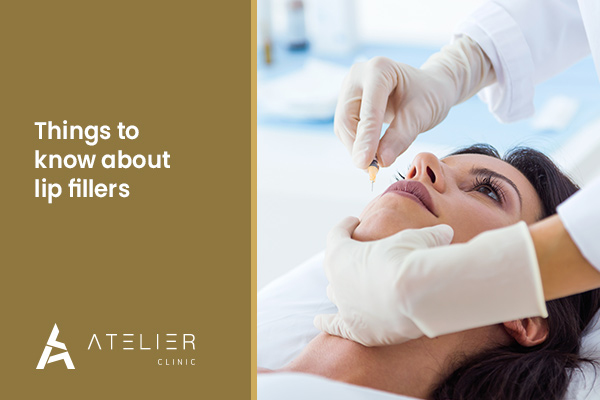Things to Know About Lip Fillers

Things to Know About Lip Fillers
What are lips fillers?
One of the most popular cosmetic procedures is lip fillers. In the world of cosmetics, they’re referred to as dermal fillers.
Fillers for the lips are made of a synthetic version of hyaluronic acid (HA), naturally found in your body.
How long do lips fillers last?
Lip fillers usually last for a year or more. However, your age and how your body converts calories to energy have a role (metabolism). Lip fillers don’t stay as long on younger people since their metabolism burns calories faster.
What happens when you get a lip filler?
A topical anaesthetic will be applied to your lips during a lip filler treatment. Because the topical anaesthetic will numb your lips, you won’t feel anything during the procedure. Numbing creams contain benzocaine, lidocaine, and tetracaine (BLT). Your lips should go numb in around 10 to 30 minutes.
If you’re allergic to BLTs, a nerve block injection may numb your lips. Your lips should be numb within 10 to 30 minutes of the injection.
Using a small needle, your healthcare provider will then inject lip filler into any or all regions of your lips, including the vermillion border, Cupid’s bow, and the commissure of your mouth (corners of your mouth). Even while you won’t feel any discomfort, you may experience some eye irritation and a stinging sensation. The typical amount of lip filler injected into a patient’s mouth is 1 millilitre (mL), approximately one-fifth of a teaspoon. The needle will only penetrate your skin 2.5 millimetres (mm) deep during the procedure.
During therapy, your doctor may use an ice pack to decrease swelling and bruising.
In some cases, the whole treatment might be completed in 30 minutes or less.
What happens after getting a lip filler?
You may be asked to gently massage your lips to help the filler seep into your skin after the operation is over. They may also ice your lips.
If you have any side effects, such as dizziness, nausea, or significant bleeding, your doctor will watch you for up to 15 minutes after the procedure. They’ll let you go home as soon as they judge that you no longer require supervision (discharge you). Drive yourself home after a local anaesthetic injection, as it won’t cause dizziness or sleepiness.
Lips that are swollen, sensitive, and bruised can signify an allergic reaction. After 24 to 48 hours, swelling subsides typically, but it might last up to a week.
About two weeks after the treatment, you’ll have another check-up with your doctor to make sure everything looks good. After the operation, they may take another image of your lips so you can see how they appeared before and after the procedure.
Do lip fillers have any advantages?
Liposuction has several advantages, among which are the following:
- The lip filler surgery is also safe, with a low chance of complications or side effects.
- They boost self-esteem.
- They can be reversed. Injecting an enzyme (hyaluronidase) will dissolve your lip filler if you don’t like how you appear.
Conclusion
Lip fillers are a matter of personal preference. If you’d like fuller lips, make an appointment with a doctor specialising in lip fillers and ask about your alternatives. The use of lip fillers can improve your self-esteem temporarily. Lip fillers should be renewed every 12 to 18 months on average. Discuss any questions or concerns you have with your healthcare professional.
Before going for the , it is imp to know various things regarding lip fillers. The current post provided some key things you need to know before going for the procedure.



